Tags
Related Posts
Share This
Peter Mugga: Culture and Music
By Charlotte Martinez/Photo by Michelle Rutt
His humble demeanor complements his exterior; short black dreadlocks topped with a beanie, a leather jacket that gives him the “Ghost Rider” edge, a cross hanging from his neck, and casual yet calculated steps. Calm. Alive. Inspiring for all International students at the Santa Fe University of Art and Design.
“Come to my office,” he says.
“You have an office?”
“Yeah.” He smiles. “I coordinate the sound studio.”
On the way, a music professor shakes his hand and a fellow student smiles at him like an old friend. The encounters are brief, but reverent, a reverence which Peter Mugga has earned and will not brag about.
He has his own office! Second door to the right in a Benildus hallway. Small, but personalized. Like the influences of his two worlds, Uganda and the US, Mugga’s office seems to co-exist between his love of culture and his love of technology.
His bookshelf holds several versions of a harp-like instrument called Ndungu, the likes of which resemble a human spine, but when played produce music suitable for Mount Olympus. A guitar leans in its holster, traditional and worn. Two others lie by his desk. To his right, the beads (perhaps shells) of his Shekere shaker sleep on a chair after a hard day’s rattling. Giant speakers and audio equipment fill the other half of the room. By the door, a giant drum called Mgoma, his favorite instrument, waits for him like an obedient canine.
One semester away from a bachelor’s degree in Contemporary Music, the musician admits that his passion for recording, technology and sound was not “something I grew up with, but I found.”
What Peter Mugga grew up with was a father who, in their home village, taught him the traditional instruments of East Africa. Mugga developed a great passion of the sounds of African, but later this passion would grow to include the technologies of modern music.
“I wanted to be in the studio,” Mugga elaborates, “to turn the nobs,” something he couldn’t do if he remained in his village, but perhaps could explore in the capitol city of Campalla, where he attended high school.
It was important, Mugga explained, that he be able to learn all aspects of traditional and contemporary music. It was important, he admits, to prove his work.
“It’s hard to tell parents and people in the community [Uganda Village] that you’re going to study music. They think you’re spoiled…that you’re not doing anything.”
Despite what people back home thought, Mugga pursued his love of drumming and performance by joining a touring group that took him to 40 states in the US. With the little money they earned, the group contributed tuition to Ugandan kids and used the rest to support the tour.
Mugga admits, “before you can do anything you need money” and in 2009, an invitation to Richland College in Dallas was a chance to utilize his earnings.
Settling for two years in Dallas, the musician adapted to the US education system, enduring standardized placement tests and so-called development classes “that didn’t even transfer.”
“I never wanted to go to a school with a traditional setting,” Mugga says, so when a friend of his directed him to SFUAD, he looked into it.
This is where his humility peaks.
“I can never afford this school,” Mugga starts. “They said, ‘just come.’” the musician smirks when questioned further. “They gave me a full scholarship.”
He arrived in Santa Fe, claimed a major in Contemporary Music, and was flooded with opportunities in audio technology and music performance. Mugga continues today working in his many part time jobs, including coordinator for SFUAD’s recording studio, co-teacher for the African drums, and DJ for events like last year’s Public Enemy concert.
After graduation, Peter Mugga plans on rejoining the African tour group and working not only as their performer but as their CD mixer and producer. Listening to their latest recordings, Mugga says, “I can do so much better than this.”
The problem is, he can no longer categorize himself as one thing: a performer, a producer, a recording engineer, an educator, a multi-instrumentalist, a live sound engineer, a recording artist, and a DJ? In addition, good friend, excellent student and an inspiring artist can be added to the list.
“Through music,” Mugga concludes, “there are so many stories you can tell.” Now Peter Mugga’s own talents and stories, though he won’t say it, fill an entire page on google.






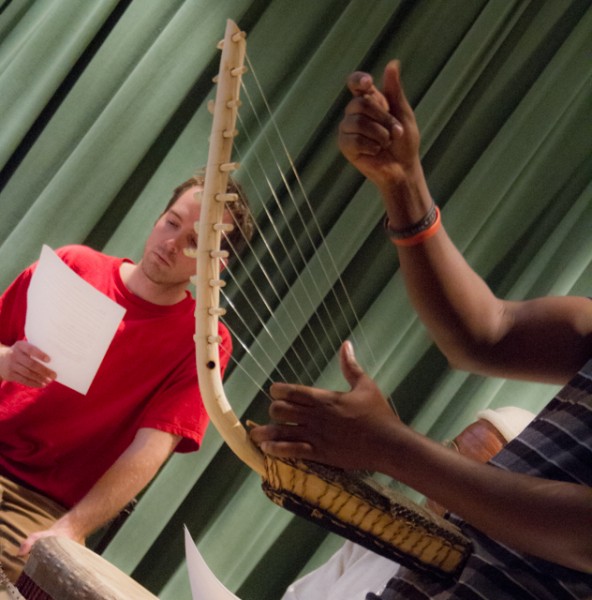
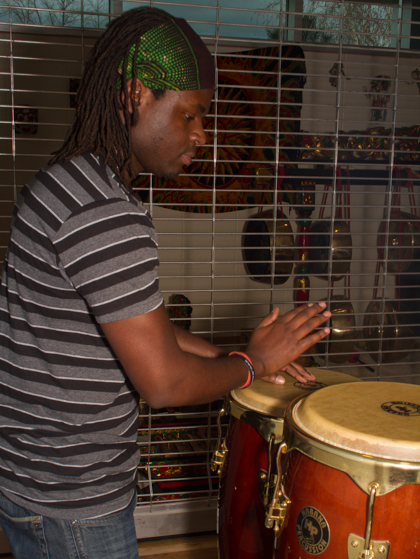
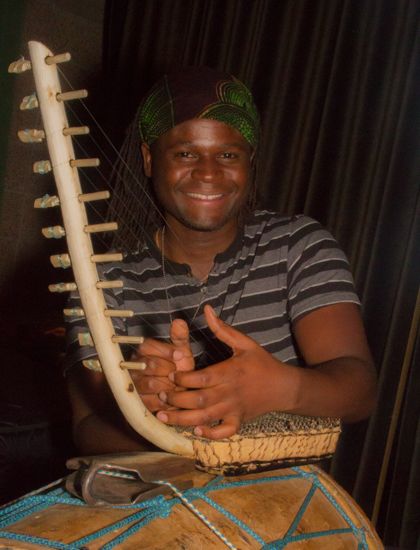
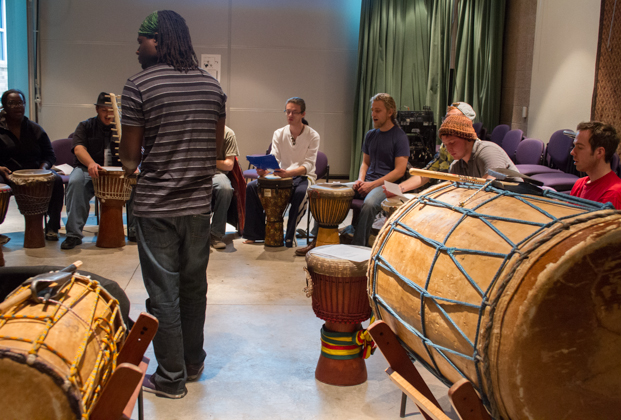
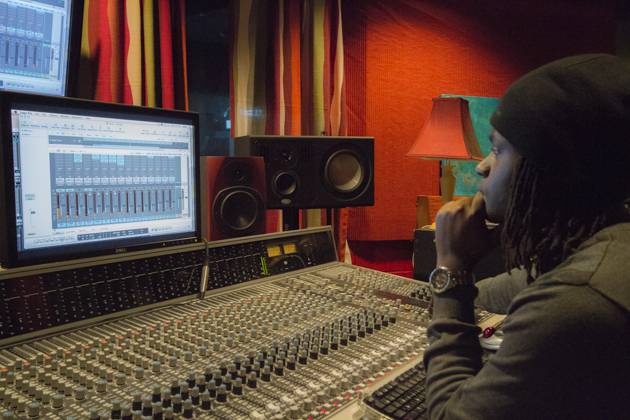
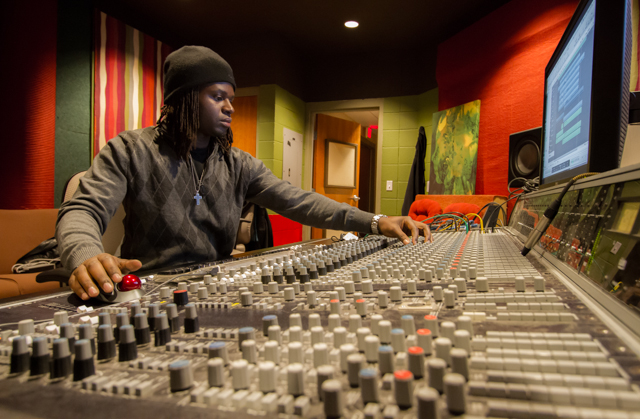
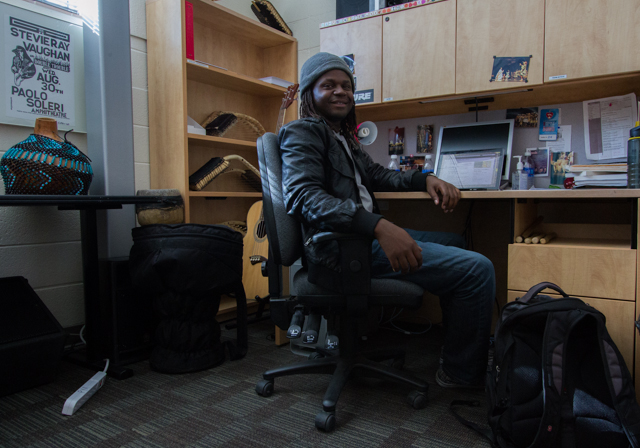
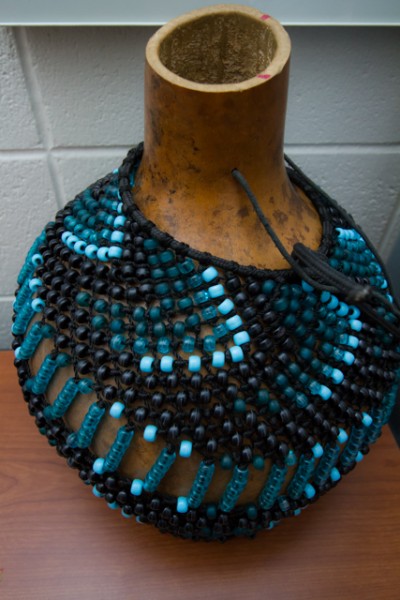
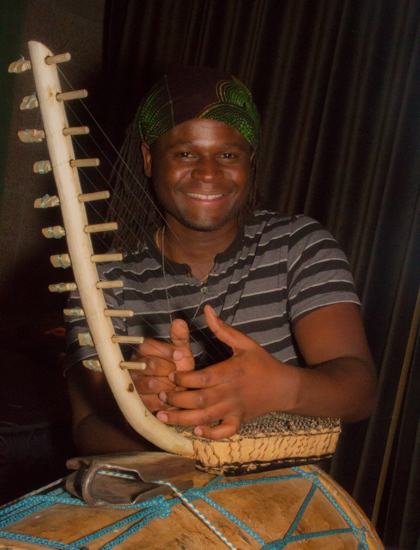
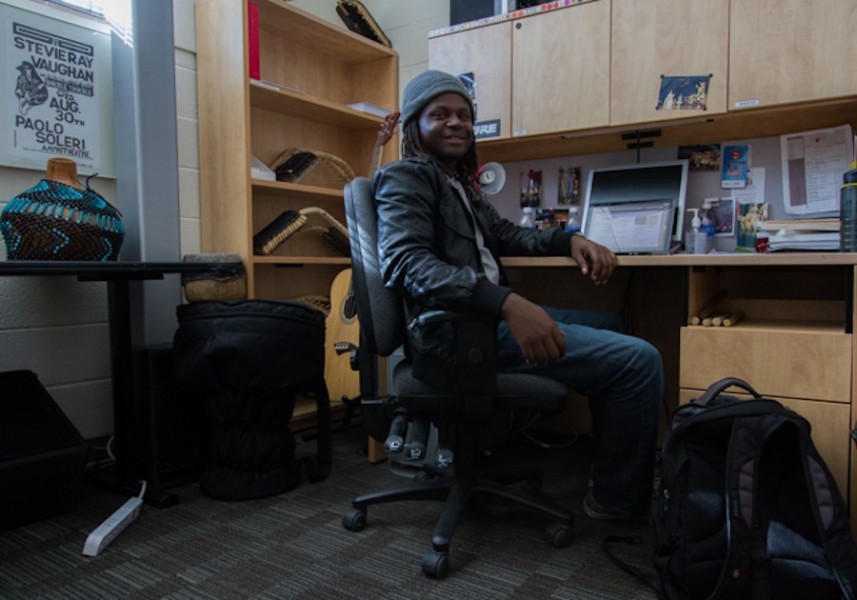
 Jackalope Magazine is the student magazine of Santa Fe University of Art and Design. Building on the interdisciplinary nature of our education, we aim to showcase the talent of our university and character of our city.
Jackalope Magazine is the student magazine of Santa Fe University of Art and Design. Building on the interdisciplinary nature of our education, we aim to showcase the talent of our university and character of our city.